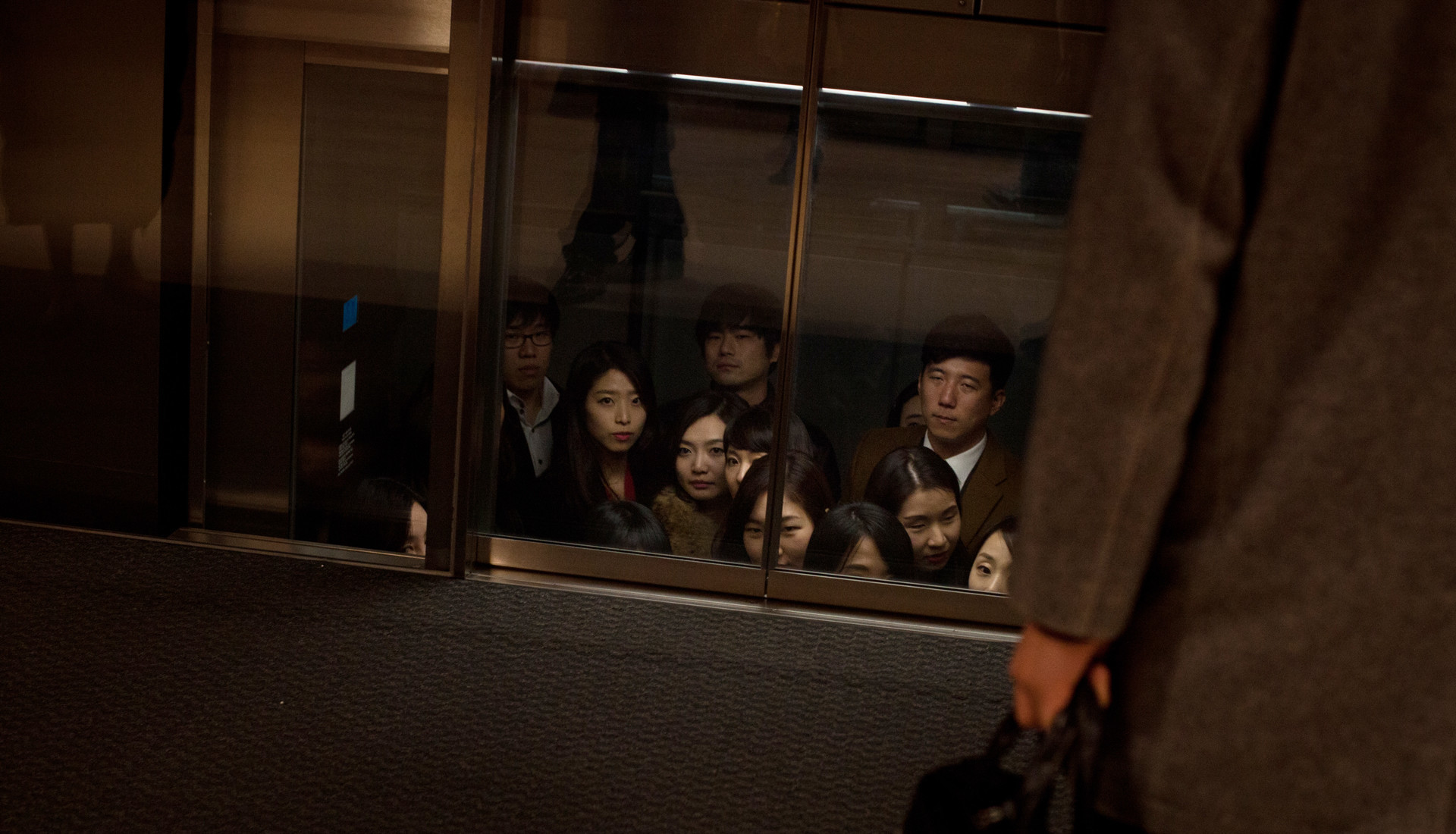You can watch Samsung Galaxy here (7 min.)
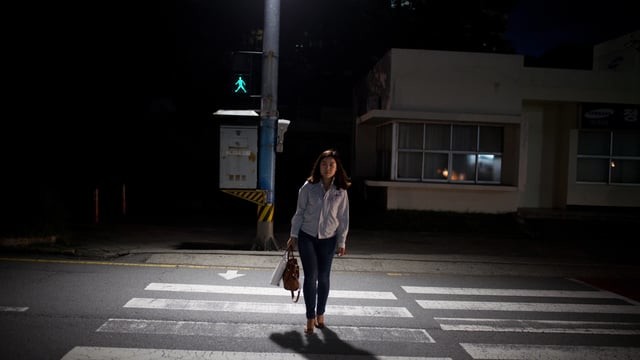
What do we know about South Korea? Almost nothing. The country usually makes the news when its half-brother North Korea issues a new salvo of threatening language. To outsiders, South Korea seems a lot like Japan: clean, disciplined, hierarchical, the economy above all else. Images of daily life, which might give us a glimpse into the psyche of the average citizen, are almost nonexistent.
Last week, the virtually impossible happened in South Korea. An arrest warrant was issued for Jay Lee, Samsung Electronic’s vice chairman and the de facto head of the Samsung Group. Lee is accused of paying $36 million in bribes to a longtime friend of the country’s president, Park Geun-hye.
The president and her confidant had already incited a nationwide uproar, culminating in impeachment proceedings against Park in December. Charges of bribery and embezzlement through a variety of the friend’s foundations expose what everyone there knows, but no one dares to say: South Korea is corrupt through and through, a country where a narrow elite divvies up the spoils.
You don’t truly understand the impact of what’s happening until you watch the film Samsung Galaxy
There have been political scandals before, but a warrant to arrest the leader of Samsung, the crown jewel of the South Korean economy, is an unprecedented shock. It’s a stunning departure from the way things have always gone before. Jay Lee’s father was Samsung’s top man until a heart attack in 2014. The elder Lee was repeatedly convicted of bribery, tax evasion, and breach of trust, but the sentences were never carried out. As soon as the next president took office, Lee was pardoned, and he resumed his position at Samsung’s helm.
The Lee family is thus in every respect a dynasty, far above the law. The current scandal is so immense, however, that not only the president but also the economic elite are teetering.
You don’t truly understand the impact of what’s happening until you watch the film Samsung Galaxy, made by French photographer Romain Champalaune. The film is a video letter, told by a young woman describing her daily life. Her voice starts out dry and businesslike, but gradually draws us into a chilling and bitter story.
That story’s power lies precisely in its seemingly businesslike presentation, with an undertone of sarcasm that slowly rises to the surface. The images undergo a similar transformation, acquiring an extra dimension: Champalaune’s camera explores the photos, accenting certain features, subtly twisting foreground and background to create a sense of constriction and alienation, of loneliness and doom.
Samsung Galaxy is a jewel of a film: a small story that tears open a heartbreakingly massive wound. This is what life looks like nestled in the arms of Samsung, bigger than the state.
—Translated from Dutch by Grayson Morris and Erica Moore
More from De Correspondent:
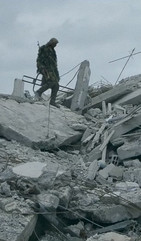
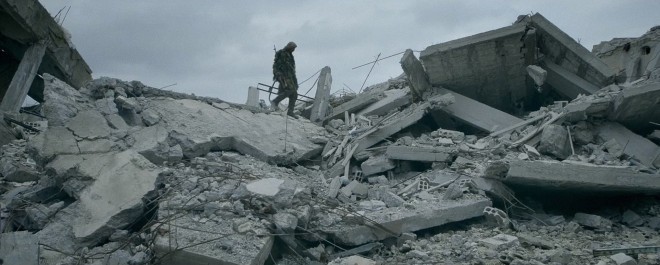 A day in the life of a sniper fighting ISIS
In few places has the fighting against the Islamic State been as heavy and sustained as in the Syrian town of Kobani, near the Turkish border. The Kurdish population there slowly but surely took back their streets from the terror organization. Filmmaker Reber Dosky made the trek to Kobani and came back with a unique portrait of a sniper in a battered city.
A day in the life of a sniper fighting ISIS
In few places has the fighting against the Islamic State been as heavy and sustained as in the Syrian town of Kobani, near the Turkish border. The Kurdish population there slowly but surely took back their streets from the terror organization. Filmmaker Reber Dosky made the trek to Kobani and came back with a unique portrait of a sniper in a battered city.
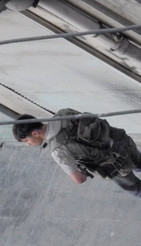
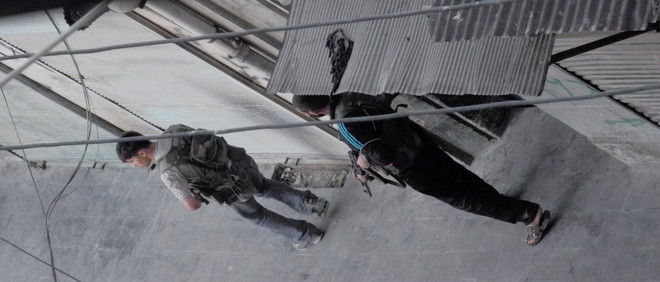 The war outside the kitchen window
One morning in August 2012, renowned Syrian photographer Issa Touma saw young men lugging sandbags into his street. It turned out to be the start of the Syrian uprising in the city of Aleppo. Touma grabbed his camera and spent nine days holed up in his apartment, recording what was happening outside. The result? An unprecedented glimpse into a war that has been raging for three years now.
The war outside the kitchen window
One morning in August 2012, renowned Syrian photographer Issa Touma saw young men lugging sandbags into his street. It turned out to be the start of the Syrian uprising in the city of Aleppo. Touma grabbed his camera and spent nine days holed up in his apartment, recording what was happening outside. The result? An unprecedented glimpse into a war that has been raging for three years now.
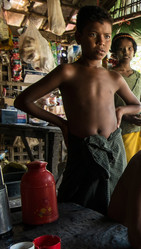
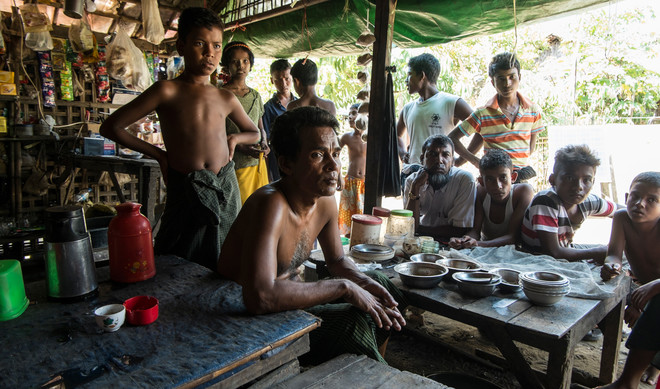 How do you tell stories from a country that doesn’t want them told?
Last week, I wrote about the horrors that the Rohingyas in Burma must endure. Many readers had never heard of their plight. In part, that’s because the authorities don’t want journalists to tell this story. And so today, a look at “the making of.”
How do you tell stories from a country that doesn’t want them told?
Last week, I wrote about the horrors that the Rohingyas in Burma must endure. Many readers had never heard of their plight. In part, that’s because the authorities don’t want journalists to tell this story. And so today, a look at “the making of.”



